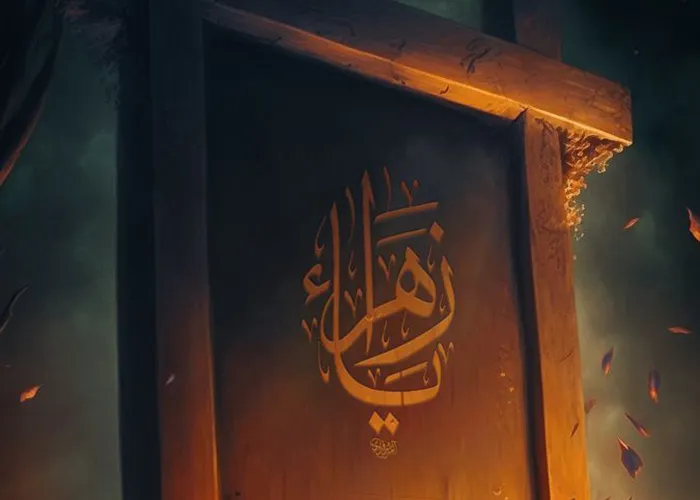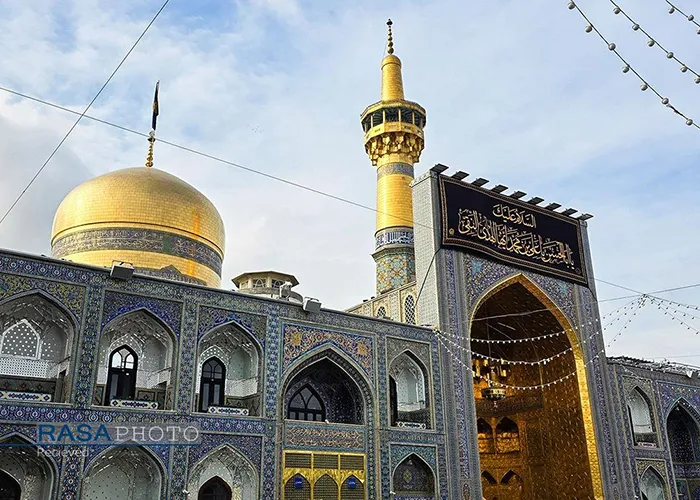Events of the Week – Volume01 Issue21
13th November 2024 – 19th November 2024
November 13th – 11th Jamadiul Awwal
597 AH – Birth of Nasir al-Din al-Tusi, one of the most important Twelver Shi’a philosophers, scientists, and theologians.
Khajeh Nasir al-Din Tusi (597–672 AH) was a distinguished Shi’a philosopher, scientist, and theologian of the 7th century AH. He is known for reviving philosophy and introducing a philosophical method in Shiite theology. Prominent Shiite scholars, such as Allama Hilli, Ibn Maysam Bahrani, and Qutb al-Din Shirazi, were among his students. His works on astronomy and ethics have influenced Islamic thought for centuries. Al-Tusi’s achievements reveal how Shi’a scholars have historically contributed to both religious and scientific knowledge, embodying the pursuit of truth in all fields. here is ample evidence that Khajeh Nasir al-Din Tusi was a follower of Twelver Shiism. In many of his theological works, such as Tajreed al-Itiqad, he refers to the twelve Imams and their infallibility. He also wrote special treatises on the subject, including Al-Firqah al-Najiya, Risalah fi Hasr al-Haq bi Maqalat al-Imamiyya, Al-Ithna Ashariyya, and Risalah fi al-Imamah.
November 14th – 12th Jamadiul Awwal
Annual Memorial Anniversary of Ayatollah Allama Sayyid Muhammad Husayn Tabatabai (RA),
Ayatollah Allama Sayyid Muhammad Husayn Tabatabai (RA), born on 29 Dhu al-Hijjah 1321 AH in Shadabad near Tabriz, was orphaned young, losing his mother at five and his father at nine. After early studies, he traveled to Najaf in 1344 AH, where he studied Islamic jurisprudence, philosophy, and law under prominent scholars like Ayatollah Na’ini and Ayatollah Badkoube’i. Achieving the rank of ijtihad in 1354 AH, he returned to Tabriz to teach, eventually moving to Qom in 1365 AH to continue his work. In Najaf, Allama Tabatabai pursued spiritual knowledge and ethical refinement under the guidance of Ayatollah Haj Mirza Ali Agha Qazi (RA), whom he regarded as his true teacher. Ayatollah Qazi, revered as a unique spiritual guide, profoundly influenced Tabatabai’s approach to divine knowledge and spirituality. Allama Tabatabai is best known for Tafsir al-Mizan, his exceptional Quranic exegesis, which combines philosophical insight with spiritual depth, making it essential in Shi’a scholarship. His life and works highlight the importance of Quranic study and philosophy in personal and communal growth, leaving a lasting legacy in Islamic thought.
November 15th – 13th Jamadiul Awwal
11 AH – Martyrdom of Lady Fatima (sa) (according to the narration of 75 days)
Lady Fatima (sa), daughter of the Prophet Muhammad (pbuh), is an iconic figure in Shi’a Islam. Revered for her unwavering commitment to justice and her profound piety, she stands as a model of resistance against oppression. Lady Fatima (sa), passed away after a period of illness caused by physical injuries, she sustained when her house was attacked, and she was trapped between the door which was pushed at her following the Prophet’s death. According to one narration, she was martyred 75 days after her father’s passing. Her life and her tragic death underscore the challenges faced by the Prophet’s family (Ahl al-Bayt) and highlight her dedication to preserving the Prophet’s message. There is another narration regarding the date of her death, which sites the 3rd of Jumada al-Thani as being the date, which is ninety-five days after the death of the Prophet (PBUH). There are three locations that are considered as being the most likely places of the burial of Hazrat Fatima Zehra (sa):
- Between the Prophet’s tomb and pulpit in the Prophet’s mosque (Rawdat al-Nabi).
- In the house of Fatimah Zahra (sa), which is now part of the Prophet’s mosque.
- The Baqi’s cemetery (which is considered the most probable burial site).
72 AH – Murder of Ibrahim b. Malik al-Ashtar, son of Malik al-Ashtar.
Ibrahim ibn Malik al-Ashtar, son of Malik al-Ashtar, was a loyal companion of Imam Ali (a) and a steadfast supporter of the Ahl al-Bayt (pbut). His martyrdom symbolizes the ongoing struggle between those loyal to the Prophet’s family and their adversaries. Malik al-Ashtar, Ibrahim’s father, was a prominent military commander during the Rashidun Caliphate and a loyal ally of Imam Ali. The family hailed from the Banu Nakh’aa tribe, part of the larger Madhhaj tribe, and the title “Nakh’i” was passed down to them. Ibrahim had a brother, Abdul Rahman ibn Abdullah al-Nakh’i, who was also known for his bravery. Ibrahim is said to have fought alongside his father in the Battle of Siffin in 657 CE against the Umayyad forces under Muawiya’s command. Ibrahim gained prominence when he joined Mukhtar al-Thaqafi’s rebellion against the Umayyads. After Mukhtar took control of Kufa in 685/86, the Umayyad army, led by Ubayd Allah ibn Ziyad, marched toward the city. Mukhtar sent Ibrahim and his mostly Iranian forces to confront them. Ibrahim led his troops north to the Battle of Khazir, east of Mosul, where he dealt a heavy defeat to the Umayyads and personally killed Ubayd Allah.
November 19th – 17th Jamadiul Awwal
1442 AH – Demise of Muhammad Taqi Misbah Yazdi, a mujtahid, philosopher, Qur’anic exegete and a professor in the Seminary of Qom.
Muhammad Taqi Misbah Yazdi (born Taqi Givachi; January 31, 1935 – January 1, 2021) was an influential Iranian Shiite jurist, philosopher, and educator. He founded the Imam Khomeini Educational and Research Institute, served several terms in Iran’s Assembly of Experts, and was a former member of the Supreme Council of the Cultural Revolution. He was also active in the Society of Seminary Teachers of Qom and previously chaired the Supreme Council of the Ahlul-Bayt World Assembly. Recognized as the spiritual leader of the conservative “Steadfast Front,” his speeches and views earned him a reputation among some as a hardline cleric supportive of using force against critics of the Islamic Republic.
In religious scholarship, Misbah Yazdi was respected for his works on Quranic interpretation and Islamic philosophy. His textbook, Teaching Philosophy, has been translated into multiple languages, underscoring his influence as a philosophy and interpretation professor in the Qom Seminary. Misbah Yazdi represented Tehran in the Assembly of Experts across several terms, though he lost his seat in 2016. Elected again in 2020 to represent Khorasan Razavi, he passed away before formally assuming his position.
editor's pick
news via inbox
Subscribe to the newsletter.




